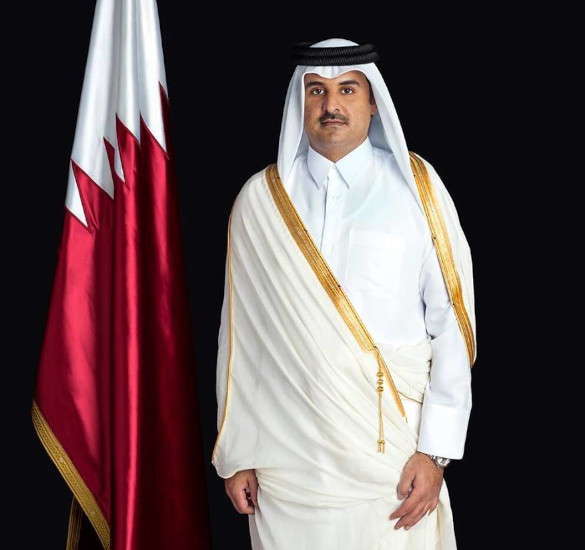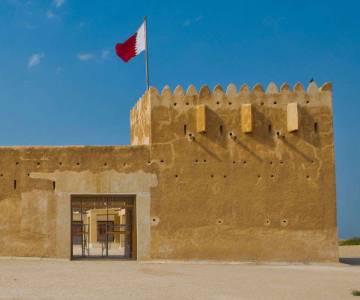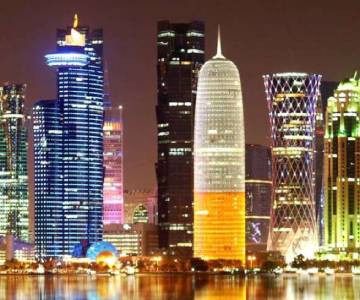
Qatar
- Official name: State of Qatar
- Political system: Constitutional Monarchy (Emirate)
- Amir: Sheikh Tamim bin Hamad Al Thani
- Prime Minister: KMohammed bin Abdulrahman bin Jassim AL THANI
- Capital: Doha (or Al Dawha)
- Population: 2,716,000 inhabitants (2023) – Qatari
- Official language: Arabic
Politics of Qatar
Qatar is a constitutional hereditary monarchy, with the Amir of Qatar as head of State and head of Government. The AL THANI family has ruled the country since the declaration of independence in 1971. Sharia law is the main source of Qatari legislation, and civil law is also in practice.
Under the referendum of April 2003, Qatari voters approved a new constitution that transformed the country into a democracy. The constitution lays the foundations for the principle of an independent justice and established the freedom of worship, the Consultative Assembly and parliamentary elections (even though political parties are not allowed in Qatar).
The Amir, Sheikh Tamim bin Hamad AL THANI, rules the country with the assistance of the Council of Ministers and an Advisory Council. He holds both legislative and executive powers, and appoints the Prime Minister as well as the other Ministers. The Council of Ministers is responsible for proposing draft laws and decrees, and for supervising the implementation of these laws and decrees.
The Amir’s Mother, Her Highness Sheikha MOZAH, contributes tremendously to the country’s development and influence. The website dedicated to her achievements offers extensive coverage of Sheikha Mozah’s projects in education, health, family and culture both on the national and international levels.
International
Qatar is a small country surrounded by larger neighbours, and it has always try to protect its influence and sovereignty by establishing strategic alliances.
Today Qatar has bilateral relationships with a variety of foreign powers and is member of several organisations including:
- The United Nations (UN) and its subsidiary global organisations
- The Asian Group of the United Nations Human Right Council (UNHRC)
- The Organisation of Petroleum Exporting Countries (OPEC)
- The Organisation of Arab Oil Exporting Countries (OAPEC)
- The Arab League
- The World Trade Organisation (WTO)
- The International Monetary Fund (IMF)
- The World Bank
- The World Intellectual Property Organisation (WIPO)
- The Organisation of Islamic Conference (OIC)
- The Gulf Cooperation Council (GCC) with Bahrain, Kuwait, Oman, Saudi Arabia, and the UAE
- The UNESCO World Heritage Committee
- The World Customs Organization (WTO)
- Interpol (International Criminal Police Organisation)
- The World Health Organization (WHO)
- The United Nations Conference on Trade and Development (UNCTAD)
In June 2017, Saudi Arabia, the UAE, Bahrain, Egypt and Yemen broke diplomatic ties with Qatar until January 2021. Qatar is identified as a middle power by experts.



